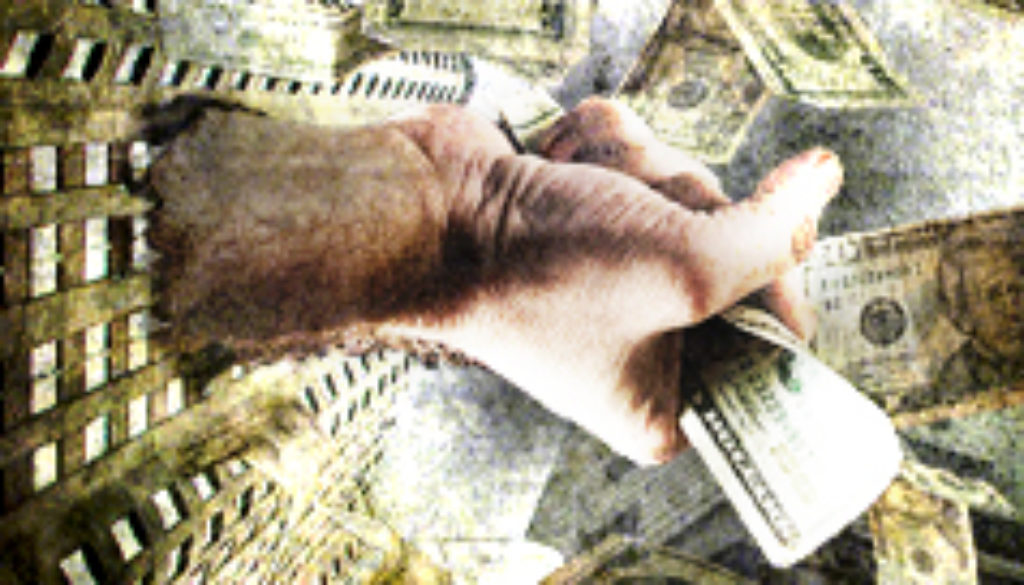The Bank Oligopoly Sucks Away Economic Value
The following post first appeared on U.S News and was written by Wallace Tuberville at Demos
Without a doubt, the big banks should be broken up; the need is even more urgent than it was in 2007 or 2008. The Federal Reserve Bank of Dallas – hardly an Occupy Wall Street affiliate – titled its 2011 Annual Report “Choosing the Road to Prosperity: Why We Must End Too Big to Fail – Now.”
In the report, Dallas Fed President Richard W. Fisher called for a drastic “downsizing” of the megabanks. Financial institutions after the crash remain “too-big-to-fail,” he argued – in fact they’re bigger than ever – guaranteeing taxpayer bailouts when the system breaks down again.
 He’s right, of course. Banking in the United States has become extraordinarily concentrated. Waves of change have swept over financial services throughout the era of deregulation, primarily resulting in an economy skewed toward extraction of value by financial institutions. The financial crisis was actually the culmination of the process of concentration, as Lehman evaporated and Bear Stearns and Merrill Lynch were absorbed into JP Morgan Chase and Bank of America respectively. Well over half of all bank assets are now held by just five banks.
He’s right, of course. Banking in the United States has become extraordinarily concentrated. Waves of change have swept over financial services throughout the era of deregulation, primarily resulting in an economy skewed toward extraction of value by financial institutions. The financial crisis was actually the culmination of the process of concentration, as Lehman evaporated and Bear Stearns and Merrill Lynch were absorbed into JP Morgan Chase and Bank of America respectively. Well over half of all bank assets are now held by just five banks.
[See a collection of political cartoons on the economy.]
However, there is another argument against the megabanks not predicated on financial crisis. In fact, it happens every day.
“When competition declines, incentives often turn perverse and self-interest turns malevolent,” wrote the report’s chief researcher, Harvey Rosenblum. What he identified were distortions in a market that is dominated by an oligopoly of banks and the damage that can be done to the economy even if these banks do not fail.
It is clear that, aside from institutions that must be bailed out if they get into trouble, the concentration of banking activity into a handful of institutions has created an oligopoly that is empowered to parasitically extract value from the rest of the economy in dangerous amounts. The financial sector share of GDP has doubled in the last 30 years. In other words, the financial sector has not just done well; it has completely outpaced the rest of the productive sectors.
[See a collection of political cartoons on the budget and deficit.]
Bank profitability, in reality, camouflages this problem. The public and the regulators are reassured when they see that bank profits are higher. Unlike with other businesses, this is not necessarily a reassuring thing. So long as banks continue to trade in risky markets, there is a very close connection between profits and risk. Traders cannot make a profit without taking risks and banks are still incentivized to make bets that can go terribly wrong. Remember that the JP Morgan Chase “London Whale” trades lost the bank $6.5 billion in 2012, a little more than a year ago.
Breaking up the banks, either by resurrecting something like the Glass-Steagall Act (as recently proposed by the unlikely duo of Sens. Elizabeth Warren, D-Mass., and John McCain, R-Ariz.) or by implementing a so-called “Volcker Rule” with real teeth, is still priority one. It turns out that preventing another bailout – by shrinking the megabanks – also eliminates a costly oligopoly that siphons off value from the capital markets every day.
- Join the debate on Facebook.
- Follow U.S. News Debate Club on Twitter.
- Check out U.S. News Weekly: an insider’s guide to politics and policy.

